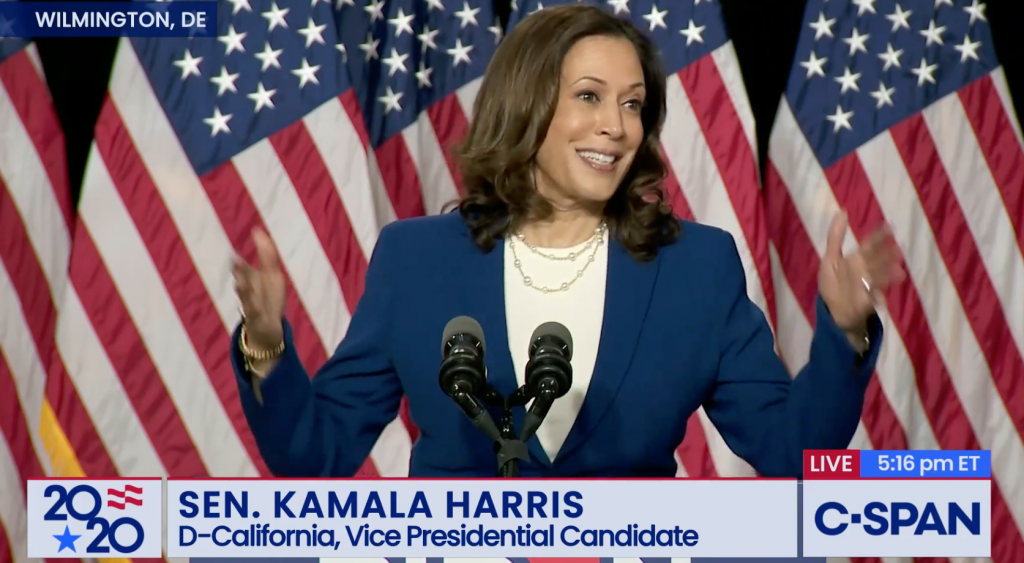
U.S. Sen. Kamala Harris speaks at a press conference with Presidential candidate Joe Biden. (Source: CSPAN)
Harris Concerned with Facial Recognition, Biases in Hiring Algorithms
According to an analysis on Venturebeat.com by Khari Johnson, Democratic Vice Presidential candidate Kamala Harris has a record of being well versed on AI and other high tech issues that are coming to the fore in political policy this year and will be even more scrutinized in the future.
Harris has been a key figure in Congress when it comes to introducing legislation to better regulate and rein in the wide-ranging impact of AI and related technologies, especially when they have the potential to institute discrimination against minorities and women.
For instance, in 2018, Harris was one of several Senators who sent letters to the Federal Bureau of Investigation (FBI), Federal Trade Commission (FTC), and Equal Employment and Opportunity Commission (EEOC) asking questions about their use of facial recognition software and urging the investigation of algorithmic bias in hiring and arrests. She was especially concerned with facial recognition violating civil rights in misidentifying black people as criminals since the algorithm is far less accurate when black people are involved. She also pointed out the flaws in hiring programs and how they may violate workplace anti-discrimination laws.
“Harris’ stance on issues like predictive policing and facial recognition may be especially important amid fervent calls for police reform and the end of institutional racism following the death of George Floyd,” Johnson writes. “Her position on these issues may also be viewed in the context of her record as California Attorney General, San Francisco District Attorney, and a public prosecutor in Alameda County.”
Harris also has pushed for a unified AI policy in the federal government. She was one of four U.S. senators who drafted the AI in Government Act, introduced in 2018 and reintroduced in 2019 to develop a more cohesive federal AI policy through the General Services Administration (GSA). It would have directed the heads of each federal agency to recommend ways to remove barriers to AI adoption, as well as “best practices for identifying, assessing, and mitigating any discriminatory impact or bias on the basis of any classification protected under federal nondiscrimination laws, or any unintended consequence of the use of artificial intelligence by the federal government.”
https://www.facebook.com/watch/?v=627233831073679
It also would have instituted a plan to counter China in the AI race for supremacy. Like most bills, even bi-partisan ones, it went to Senate Majority Leader Mitch McConnell’s desk and was never put forward for a vote in the Senate.
“When we look also at these emerging fields and look at issues like AI — artificial intelligence and machine learning — there is a real need to be very concerned about how [racial bias is] being built into it,” Harris said in a video posted by her Senate office in April 2019. “It’s a real issue and it’s happening in real time. And the thing about racial bias in technology is that unlike the racial bias that you can [identify] pretty easily — all of us can detect when you get stopped in a department store or while you’re driving — the bias that is built into technology will not be very easy to detect. And so machine learning is literally that the machine is learning, and it’s learning what it’s being fed, which is going to be a function of who’s feeding it and what it’s being fed.”
read more at venturebeat.com







Leave A Comment